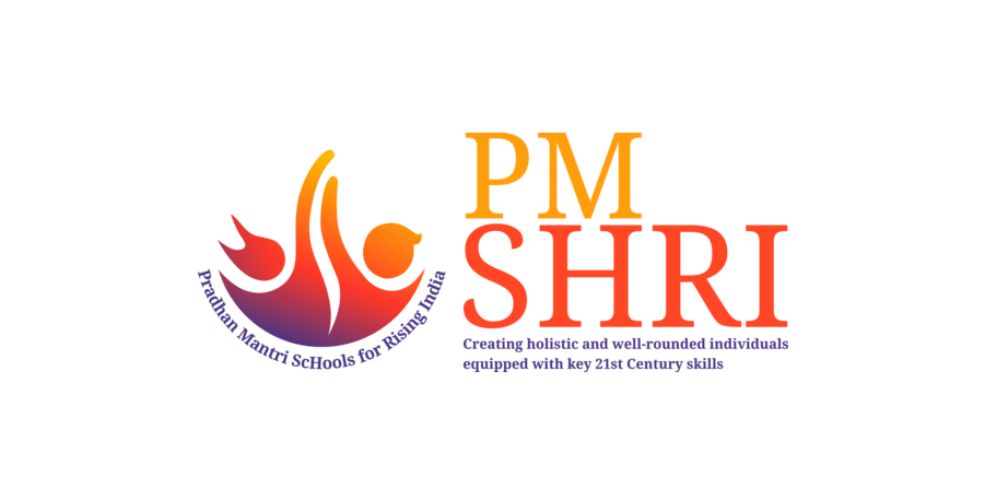PM SHRI- In a recent development, the Parliamentary Standing Committee on Education, Women, Children, Youth, and Sports has expressed concern over the withholding of funds under the Samagra Shiksha Abhiyan (SSA) to Tamil Nadu, West Bengal, and Kerala. The committee described the action as “unjustifiable” and recommended the immediate release of the pending funds to these states.
The crux of the issue lies in the refusal of these states to sign Memorandums of Understanding (MoUs) with the central government for implementing the Pradhan Mantri Schools for Rising India (PM-SHRI) scheme. This scheme aims to upgrade 14,500 schools across India, transforming them into model institutions that embody the spirit of the National Education Policy (NEP) 2020. However, Tamil Nadu, Kerala, and West Bengal have declined participation, citing various concerns.
As a consequence of their non-participation, the central government has withheld SSA funds from these states. The pending amounts are substantial: over ₹1,000 crore for West Bengal, ₹859.63 crore for Kerala, and ₹2,152 crore for Tamil Nadu. The parliamentary panel emphasized that such withholding adversely affects the educational infrastructure and development in these regions.
The ongoing debate surrounding the PM-SHRI scheme and its connection to the Sarva Shiksha Abhiyan (SSA) has highlighted critical concerns about the implementation of national educational policies in India’s federal structure. The Parliamentary committee has drawn attention to the fact that SSA predates the PM-SHRI scheme and plays a fundamental role in upholding the Right to Education (RTE) Act, which guarantees free and compulsory education for children across the country. The committee argued that linking SSA funding to the adoption of PM-SHRI is inappropriate and unfair, as SSA is a legislative obligation, while PM-SHRI is an executive policy initiative. By connecting the release of essential educational funds to a policy initiative like PM-SHRI, the central government risks undermining the core objective of providing equitable education nationwide.
The Sarva Shiksha Abhiyan has historically been the backbone of educational development, ensuring that children, particularly from marginalized communities, have access to quality education. The committee emphasized that the PM-SHRI scheme should not become a prerequisite for states to receive SSA funds, as it contradicts the spirit of the Right to Education Act. Many states, including Kerala, Tamil Nadu, and West Bengal, have demonstrated impressive educational outcomes with Gross Enrollment Ratios (GER) significantly surpassing the national average. These states have made substantial investments in educational infrastructure, teacher training, and student welfare programs. However, the delay in releasing SSA funds and inconsistent allocations have posed a challenge to further improvements in these areas. The committee expressed concerns that underfunding essential programs like SSA could jeopardize years of progress made by states with robust educational systems.
The PM-SHRI scheme is designed to modernize the educational framework and promote holistic development through model schools. While its objectives are aligned with improving educational quality across India, the committee warned that forcing states to adopt PM-SHRI policies as a condition to access SSA funding undermines the principles of cooperative federalism. Educational policies should be inclusive and flexible, recognizing the distinct social, economic, and cultural dynamics of each state. The committee urged the Ministry of Education to engage in open and collaborative dialogue with state governments to resolve these concerns amicably. Releasing the pending SSA funds without attaching them to PM-SHRI adoption is vital for maintaining educational equity and ensuring that no child is denied the right to education due to administrative disagreements.
The committee’s recommendations highlight the need for a balanced approach that respects the autonomy of state governments while promoting national educational goals. It strongly advised that no state should be penalized for not implementing the National Education Policy (NEP) 2020 or the PM-SHRI scheme. Such an approach fosters a collaborative environment where the central and state governments work together to advance educational priorities without creating unnecessary roadblocks. The principle of cooperative federalism is essential in a country as diverse as India, where states have different capacities and approaches to addressing educational challenges. By ensuring that SSA funds are released without conditional ties to the PM-SHRI scheme, the government can uphold the Right to Education and support the individual efforts of states to improve their educational outcomes.

This situation also sheds light on the broader complexities of implementing national educational policies in a country with a diverse federal structure. While the PM-SHRI scheme represents a modern vision for education, it is crucial to acknowledge the achievements and priorities of individual states. The committee’s insistence on unconditional SSA funding reflects a broader concern that educational policy must prioritize the needs of children over administrative frameworks. States that have consistently performed well in education should not face financial barriers simply because they choose not to adopt a particular policy framework like PM-SHRI.
The resolution of this funding dispute is not only critical for the immediate release of SSA funds but also for fostering a more cooperative approach to educational policy implementation. A unified effort that respects state-specific approaches while advancing national education standards will create a more inclusive and effective education system. Ensuring equal access to resources for all states, irrespective of their adoption of the PM-SHRI scheme, is essential to fulfilling the overarching goal of providing quality education to every child across India.
A transparent and collaborative process will help bridge the gap between national policy objectives and state-level implementation, ultimately strengthening India’s commitment to educational equity and child welfare. Moving forward, maintaining open communication and respecting regional differences will be key to the successful execution of educational reforms. By resolving these issues and offering unconditional SSA support, the central government can reinforce its commitment to the Right to Education and ensure that PM-SHRI functions as a complementary initiative rather than a binding requirement.
For More News Update – Dailynewfeeds



